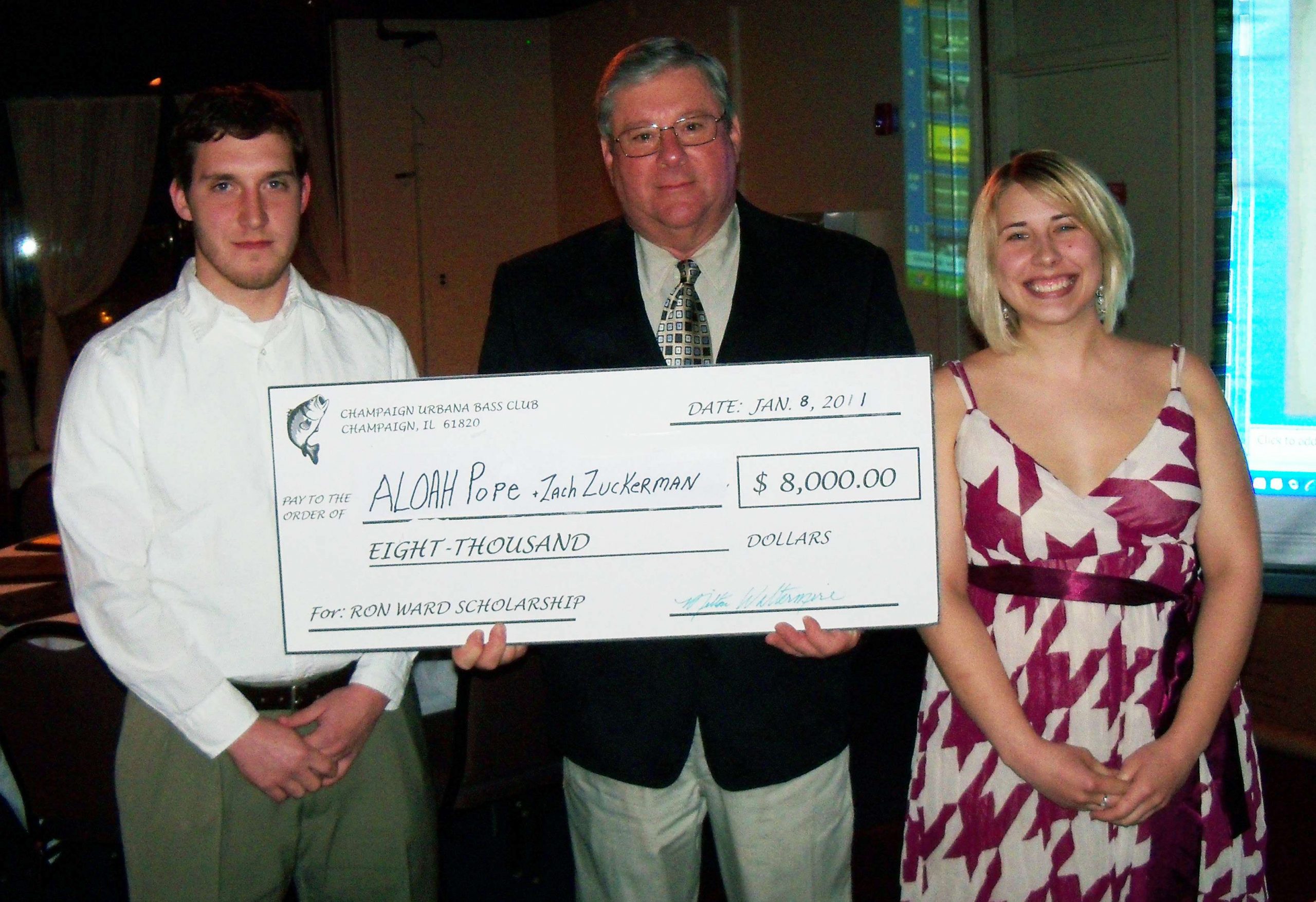
CHAMPAIGN, Ill. — For the first time in the 10-year history of the Ron Ward Memorial Scholarship, the Champaign-Urbana (IL) Bass Club has awarded two scholarships in the same year to fisheries sciences graduate students. Rather than attempting to make an impossible choice between equally qualified and impressive candidates, the club’s scholarship committee decided to split the award between Aloah Pope, an Ohio State graduate, and Zach Zuckerman, a doctoral candidate at the University of Illinois. The bass club, a member of the Illinois B.A.S.S. Federation Nation, has now provided nearly $70,000 in fisheries research scholarships since the award’s inception in 2001.
In addition to his work toward his doctorate, Zuckerman has on many occasions spent time visiting Champaign-Urbana’s elementary schools teaching wildlife ecology. He also assisted in the planning and carrying out of two hands-on education events at the Illinois Natural History Survey Aquatic Research Facility where more than 200 sixth-grade students were in attendance. His duties included fish identification, handling techniques and reproductive ecology of largemouth bass.
“Growing up outside of Chicago, my weekends and occasional weekdays were spent bass fishing in Cook County lakes,” said Zuckerman. “As a graduate student with a joint appointment between the Illinois Natural History Survey and the Department of Natural Resources and Environmental Sciences, I have turned my fascination with sportfish, particularly bass, into a career. My current research project is assessing factors that influence nest abandonment by guarding male largemouth. This study, occurring on lakes from Ontario and Quebec to both Missouri and Florida, will provide the first comprehensive study of its type to improve the management of fisheries spanning the native range of the largemouth.”
As an aspiring fish ecologist, one of Pope’s interests is in how humans influence the ecological community. Although the effect of angling largemouth bass off of nests in the spring has been studied numerous times, it is unknown whether this act significantly affects lakewide recruitment. It has already been shown that early, aggressive spawners contribute a greater number of eggs and eventual recruits than later spawning fish to the population. Understanding how angling of these early spawners will affect recruitment will be instrumental in guiding management decisions.
“My master’s thesis addresses the question of whether angling of the early spawners will affect bass recruitment,” said Pope. “I will test multiple theories on the underlying mechanisms in a series of experiments at the Sam Parr Biological Station. Ponds include bluegill as nest predators. If these studies show that the later cohorts [spawners] are capable of compensating for the loss of the earlier cohorts, I can reject the argument that angling the early spawners will affect largemouth bass recruitment.”
